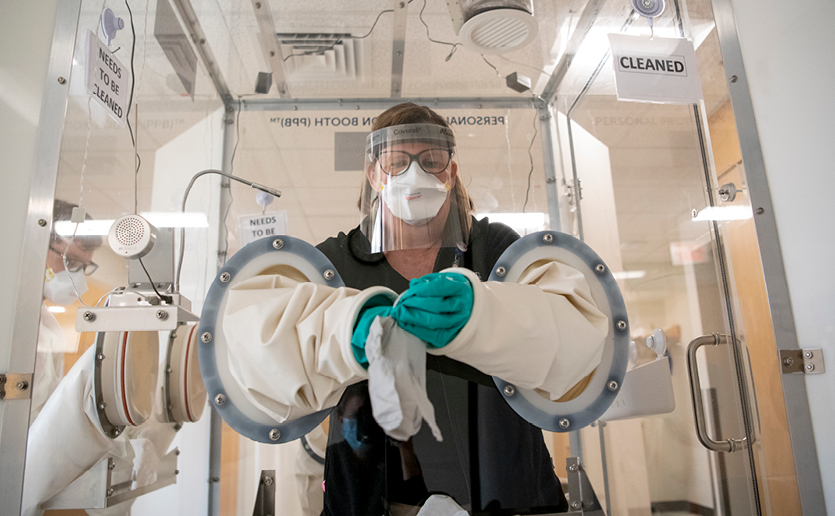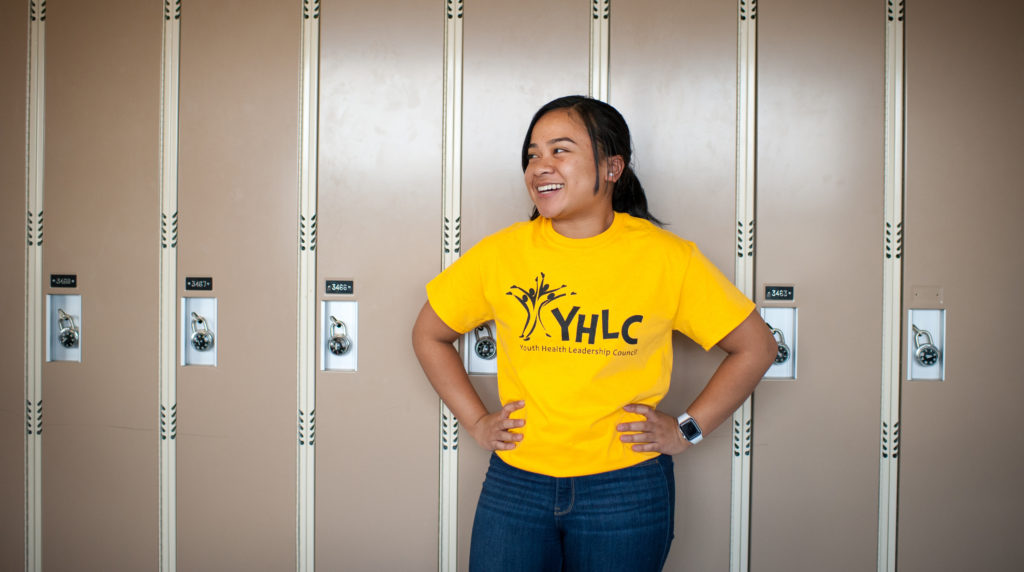In late March of 2020, Dean Xerras, MD, medical director of the MGH Chelsea HealthCare Center, received some troubling news. According to his colleagues in the Massachusetts General Hospital inpatient units, the majority of patients being admitted for treatment for COVID-19 were from communities of color, such as East Boston, Revere and particularly Chelsea — and many of them were arriving already desperately ill.

“They were young people — mothers and fathers in some cases — and they were getting intubated,” he says. For Dr. Xerras, who had been monitoring the new coronavirus with growing concern for weeks, this was an alarming sign. “It suggested that they were delaying care because they couldn’t leave their jobs, or they were scared to seek help because they were undocumented.” It also suggested a crisis was imminent.
Within a month, Chelsea had become the state epicenter, with infection rates that surpassed even New York City. At the height of the outbreak, nearly one in two Chelsea residents who presented with symptoms tested positive for the virus, according to Dr. Xerras. But by the middle of summer, infection rates in Chelsea had dramatically lowered, thanks to the efforts of a coalition of health care professionals from Mass General, working in partnership with municipal leaders, local organizations and public health officials.
“The COVID-19 crisis in Chelsea was something we should have seen coming, given everything that we knew about the community and how the virus spreads,” says Joseph Betancourt, MD, MPH, senior vice president for equity and community health at Mass General. “Fortunately, we took action quickly, and it showed, as we invested time and energy to make a difference and address these health disparities.”
Seeds of an Outbreak
Chelsea sits on the Mystic River, just over the Tobin Bridge from Mass General’s Boston campus. Once a thriving industrial center, today Chelsea is one of the most densely populated cities in the nation, with more than 35,000 residents living in two square miles. It’s also one of the poorest, with a per capita income of $24,000.

Mass General’s commitment to Chelsea began in 1971, when it opened a small primary care practice in the basement of a church to serve the local immigrant population. Over the years, the MGH Chelsea HealthCare Center has evolved, expanding its footprint and its services to meet the ever-changing needs of the community. In 1995, Mass General founded the Center for Community Health Improvement to help people in vulnerable and underserved communities like Chelsea address common health disparities.
“Crowded housing, poverty and food insecurity have been persistent in Chelsea for years,” Dr. Xerras says. Residents of communities like Chelsea are often at higher risk of developing chronic diseases like hypertension and diabetes. The same factors put them at heightened risk of exposure to COVID-19.
In addition, many Chelsea residents were at risk due to the nature of their jobs. According to the American Civil Liberties Union of Massachusetts, an estimated 80% of Chelsea workers hold essential jobs. “These are the people who operate our trains and buses, who clean our houses, who take care of our children,” Dr. Xerras says. Simply put, they didn’t have the luxury of quarantining.
“With COVID, all these factors combined to set the stage for a disaster,” he says.
Springing into Action

To address the looming crisis in Chelsea and its neighboring communities, Mass General formed the Equity and Community Health COVID Response Team. The team, co-led by Dr. Betancourt and Joan Quinlan, MPA, vice president for Community Health at Mass General, worked closely with city managers from Chelsea and the surrounding communities to formulate a plan to head off the pandemic.
“There was no hospital emergency preparedness plan focused on underserved communities and health care equity, so we made it up as we went along,” says Ms. Quinlan, who retired in late 2020.
To limit the spread of the virus, the team instituted a four-part strategy of identification, isolation, mitigation and communication. MGH Chelsea quickly established a specialized clinic and testing site in the parking lot of its building to triage individuals with symptoms for testing and evaluation. The clinic, which opened on April 13, was free to all Chelsea residents, regardless of their health insurance or immigration status.
“Once you start to test people, knowledge is power that helps drive decisions,” Dr. Xerras says.
The Power of Isolation
As testing ramped up, city officials from Chelsea and neighboring Revere contracted with a local Quality Inn to create an isolation center, giving patients who were infected but could not quarantine at home a way to protect their household members. Residents of the hotel were provided with 24/7 medical care from Mass General clinical staff and specialists. Jacky Nally, RN, a senior program manager in Mass General’s Center for Disaster Medicine, oversaw the operation.

“The staff went above and beyond to make the patients safe and comfortable,” says Ms. Nally, who has spent the last 30 years setting up field hospitals in the wake of major disasters like the 9/11 attacks, Hurricane Katrina and the Indonesian tsunami of 2004. “In addition to the exemplary clinical care, staff ensured the availability of essential items, such as finding a phone charger for a person who forgot one or picking up patients’ medication and diapers. The level of professionalism and compassion on display was something I’ll never forget.”
Chelsea City Manager Tom Ambrosino believes the isolation hotel helped save lives. “We simply would not have been able to accomplish what we have during this first phase of COVID without the creation of the isolation hotel,” he says. “And we owe that to Mass General stepping up, providing that health care and absorbing all that cost.”
For patients who couldn’t isolate, the team assembled and distributed more than 28,000 “care kits” that included resources in English and Spanish, masks and supplies for hand hygiene along with instructions on creating an easy disinfectant. In conjunction with the city, Mass General also embarked on a massive outreach campaign, making more than 5,000 calls to educate and connect high risk residents with resources such as food and mental health support.
Commitment to Community
The benefits of having a health care institution like Mass General embedded in your city are really extraordinary, and that was illustrated during this crisis.
A year later, following a second surge during the cold weather months, virus rates are in decline in Chelsea. Along with masks and social distancing, one of the keys to Chelsea’s effort to control the outbreak, according to Leslie Aldrich, executive director for Mass General’s Center for Community Health Improvement, was Mass General’s long standing commitment to community health.
“Mass General has been working for almost 50 years to establish relationships and trust in Chelsea,” says Ms. Aldrich. “Without those relationships and that investment, we could never have responded to the pandemic in the same way.”
Mr. Ambrosino agrees. “The benefits of having a health care institution like Mass General embedded in your city are really extraordinary, and that was illustrated during this crisis,” he says. “We would have been lost without them.”
To learn more about how you can support Mass General’s response to the COVID-19 pandemic, click here.


